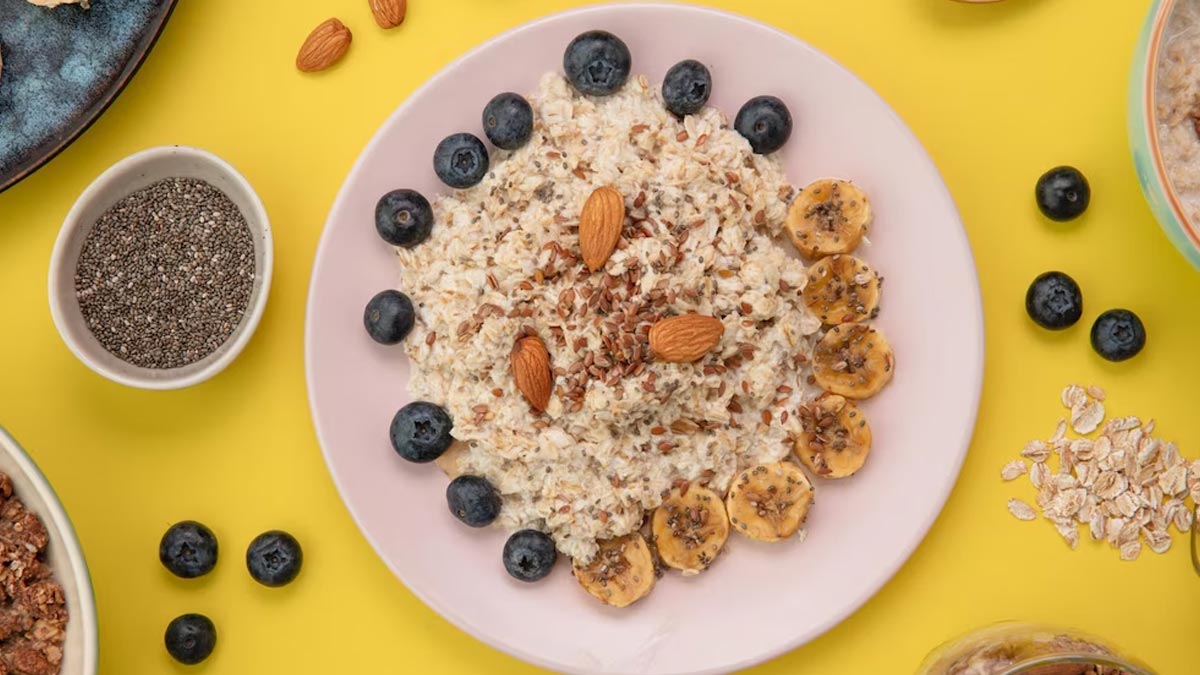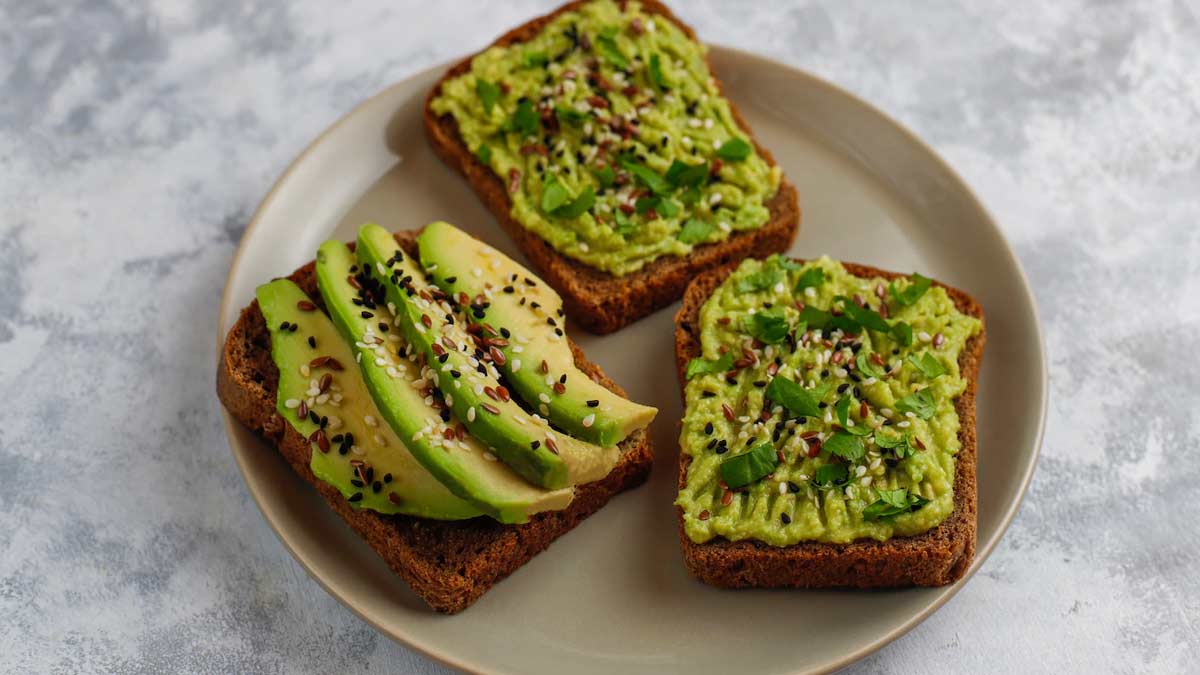
Getting your day off to the right start is not all about having energy; rather, it's about laying the groundwork for full-on health, particularly for your heart. We all know that breakfast is the most important meal of the day; however, what many don't know is that when it comes to controlling cholesterol, breakfast is a golden opportunity. According to experts, this is because it is the best time to add foods that work to keep your levels under control. Therefore, it's time to wake up to a morning routine that's not only tasty but also heart-smart.
Table of Content:-
High cholesterol, especially elevated levels of LDL (bad) cholesterol, is a key predictor of heart disease. In an exclusive interaction with the editorial team of onlymyhealth, our expert, Dr Shubendu Mohanty, Senior Consultant at Shardacare, Healthy City - Noida, shared that the has good news is that our diet has a big impact on controlling these levels. “By making informed choices in your breakfast foods, you can lower LDL cholesterol, raise beneficial HDL (good) cholesterol, and lower overall cardiovascular risk,” he added.
Top Cholesterol Fighting Foods To Have In Breakfast For Better Heart Health
So, what should you be loading onto your plate to battle cholesterol before lunch? Here are some choices, shared by our expert:
1. Oats and Other Whole Grains
This is one of the most famous and scientifically supported breakfast champion of cholesterol. Oats, barley, and whole-grain breads are full of soluble fibre, specifically beta-glucan. Soluble fibre functions like a sponge in your intestine, soaking up cholesterol and keeping it from getting absorbed into your bloodstream.
How to Incorporate:
- Oatmeal: Old school for a reason! Use steel-cut or rolled oats (not instant, which may be sweeter). Add berries, nuts, and a sprinkle of cinnamon.
- Overnight Oats: Make the night before to have in the morning for grab-and-go.
- Whole-Grain Toast: Use 100% whole wheat or rye bread. Spread with avocado or a light spread of nut butter.
- Barley Porridge: A lesser-known but similarly successful choice.
Also Read: Planning a Pregnancy? Here’s When to Get Carrier Screening Done

2. Berries
Strawberries, blueberries, raspberries, and blackberries are not only colourful and tasty; they're also full of antioxidants (such as anthocyanins) and fibre. Antioxidants protect your arteries from damage, and their fibre assists further with cholesterol lowering.
How to Incorporate:
- As a Top for Oatmeal or Yoghurt: A natural combination.
- In Smoothies: Combine with spinach, a banana, and a plant-based milk for a nutrient-packed drink.
- On Whole-Grain Pancakes/Waffles: A healthier alternative to using butter or maple syrup.
3. Nuts and Seeds
Almonds, walnuts, chia seeds, flaxseeds, and sunflower seeds are nutritional dynamos. They contain healthy monounsaturated and polyunsaturated fats, which can reduce LDL cholesterol. Flaxseeds and chia seeds are also a great source of omega-3 fatty acids and soluble fibre. Most nuts also include plant sterols, chemical compounds that inhibit the absorption of cholesterol.
How to Incorporate:
- Sprinkle on Oatmeal/Yoghurt: A quick nutrition boost.
- Add to Smoothies: For added creaminess and nutrients.
- Nut Butters: Opt for natural, unsweetened types on whole-grain toast or with fruit.
- Overnight Oats: Chia and ground flaxseeds expand and thicken the mix.

4. Avocado
This rich fruit is an excellent source of monounsaturated fatty acids (MUFAs) that are proven to decrease LDL cholesterol and possibly raise HDL cholesterol. It's also a great source of fibre and potassium.
How to Incorporate:
- Avocado Toast: A tasty and well-liked option on whole-grain bread.
- Smoothies: Provide creamy texture and healthy fat.
- Scrambled Eggs (with a twist): Serve on top or tenderly mash into egg whites.
5. Plant Sterol/Stanol Enriched Foods
Certain foods, such as some margarines, orange juice, and yoghurts, contain added plant sterols or stanols. They are chemically similar to cholesterol and interfere with its absorption in the gut, actually lowering the level of dietary cholesterol that enters your body.
How to Incorporate:
- Spread on whole-grain bread instead of butter.
- One of the quickes way to add them is in enriched yoghurt
- Follow package instructions for the daily recommended intake.
Additional Heart-Healthy Habits
“Keep in mind, diet is only part of the equation when it comes to heart-health,” Dr Mohanty highlighted. For maximum heart health and cholesterol management, make sure of the following:
- Regular Physical Activity: Work towards at least 30 minutes of moderate-intensity activity most days of the week.
- Limit Saturated and Trans Fats: Limit consumption of red meat, processed meats, and fried foods.
- Maintain a Healthy Weight: Excess weight can lead to increased cholesterol levels.
- Quit Smoking: Smoking profoundly harms blood vessels and has a bad effect on cholesterol.
- Manage Stress: Chronic stress can impact overall health, including heart health.
- Regular Check-ups: Collaborate with your physician to check your cholesterol levels and overall cardiovascular health.
Bottomline
Shifting to small, regular adjustments in your breakfast diet can make a big difference in your cholesterol levels and heart health. By adopting these tasty and healthy foods, you're not merely energising your body for the day, you're investing in a healthier, happier heart for the long term. Remember to always consult your doctor before making any severe changes in your diet or if you feel anything unusual.
Also watch this video
How we keep this article up to date:
We work with experts and keep a close eye on the latest in health and wellness. Whenever there is a new research or helpful information, we update our articles with accurate and useful advice.
Current Version